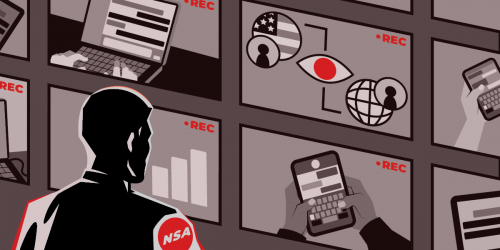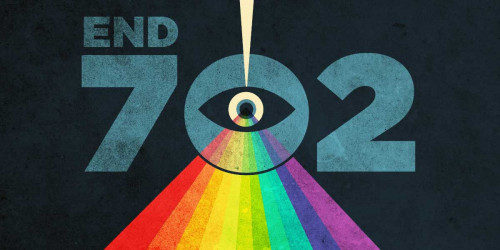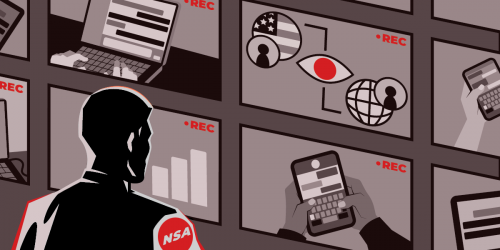In 2017, the NSA announced that it would stop conducting “about” collection. That term refers to the NSA’s searching through the Internet traffic to collect not only communications to or from an intelligence target but also those that simply mention an identifier used by a target.
As part of the NSA’s “upstream” surveillance under Section 702 —the Internet spying authority passed as part of the FISA Amendments Act in 2008 and set to expire at the end of this year—the agency copies the data flowing through Internet backbone cables. After trying to filter out communications between Americans located in the U.S., the NSA would search to see if the remaining communications mention a “selector”—an identifier linked to a foreign intelligence target—at all.
The agency wasn’t just checking to see if the selector, like an email address, was in the “to” or “from” fields. It was searching the complete communication to see if a communication mentioned the selector at all. That’s like reading not just the address and return address on the outside of an envelope, but actually opening the envelope to read the contents of the letter inside.
Civil liberties advocates have always been extremely troubled by this “about” collection because it expanded the scope of NSA’s warrantless surveillance. But the NSA defended the practice, saying that it had no way, technologically speaking, to get its hands on the communications it was allowed to search without reading through the content of all the communications it collects.
Until April of 2017, that is. After some pushback from the Foreign Intelligence Surveillance Court—which is tasked with overseeing this kind of surveillance—the NSA decided that it will no longer conduct “about” collection in order to meet the court’s low bar for protecting privacy.
That’s still a victory for Internet users’ privacy, but the win may be short-lived. Weeks after the NSA announced the end of “about” collection, the agency’s chief, Admiral Michael Rogers, told Congress that the NSA wants to leave the door open to start “about” collection again.
During a hearing on Section 702 reauthorization, Rogers was asked whether the intelligence community would support lawmakers’ attempt to codify the end of “about” collection as part of the Section 702 reauthorization process. Rogers told lawmakers that his agency would attempt to get the court’s approval to restart “about” collection if it can find a technological solution to address the FISA court’s concerns.
So it’s crucial that Congress write the end of “about” collection into law. With the Section 702 sunset looming, Congress is beginning to debate whether and how to reauthorize the surveillance authority.
Contact your representatives in Congress and tell them to make the end of “about” collection permanent and rein in the warrantless Internet spying under Section 702.










